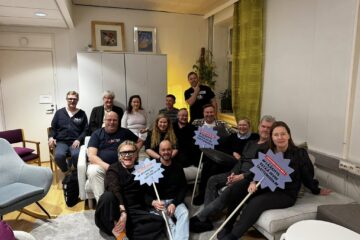Hiv-Nordic Report: Room for improvement in hiv treatment and care in the Nordic countries
In the autumn of 2019, HIV-Nordic and its member organizations conducted a survey among people living with HIV in the Nordic countries. The aim of the survey was to study the impact that changes in treatment regimens have, on treatment adherence and on patient involvement and patient-physician trust, among people living with HIV in the Nordic countries.
Patient participation a key to develop treatment and care further
HIV treatment in the Nordic countries are expected to be good, as it is provided by some of the best health systems in the world. At the same time many people living with HIV are not open about their HIV status besides to their treating doctor. Many people therefore become dependent on the information and treatment provided by healthcare professionals. It is therefore important that people living with HIV receive all necessary and relevant information from their doctor. Furthermore it is crucial that patients feel heard and understood. Patient participation is important for the follow-up of the treatment, as well as for the individual’s quality of life. In a nordic context, the survey indicates that there are differences both between the Nordic countries, as well as between the respondents within the countries in this regard.
The report moreover concludes there are shortcomings in both treatments, the follow-up of patients as well as in terms of patient participation. There is a need for deeper insight into these shortcomings. – We must identify and remove the barriers that prevent people living with HIV from getting the best out of treatment.
The civil society coming together and creating a baseline for further research
The survey was funded by the Nordic Welfare Center and the research was a cooperative effort by organizations in the civil society. The civil society in itself is becoming increasingly more important and is expected to take greater ownership and responsibility for decisions that affect the health of members of civil society. The results from the survey are vital in contributing to the knowledge base of HIV-Nordic, its member organizations and in the continuous effort to advocate for all people living with hiv, and in particular on future decisions and recommendations regarding HIV treatment. In another aspect, the report also lays a foundation for comparison in a long-term perspective, and paves the way for future research.
The report can be downloaded/read here.
For questions, comments or if you would like to request country specific data, please contact: ordforande@hiv-norden.org


